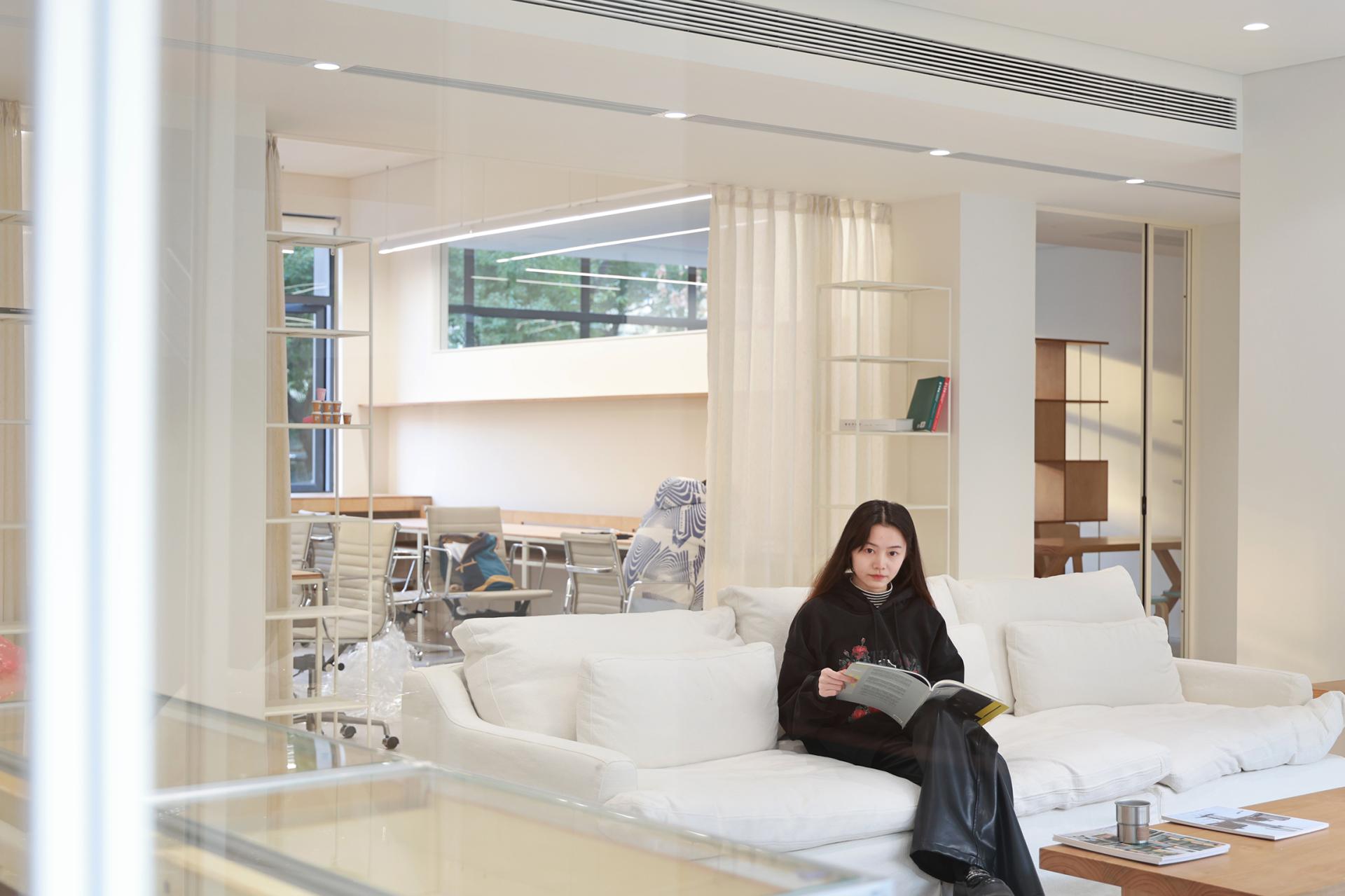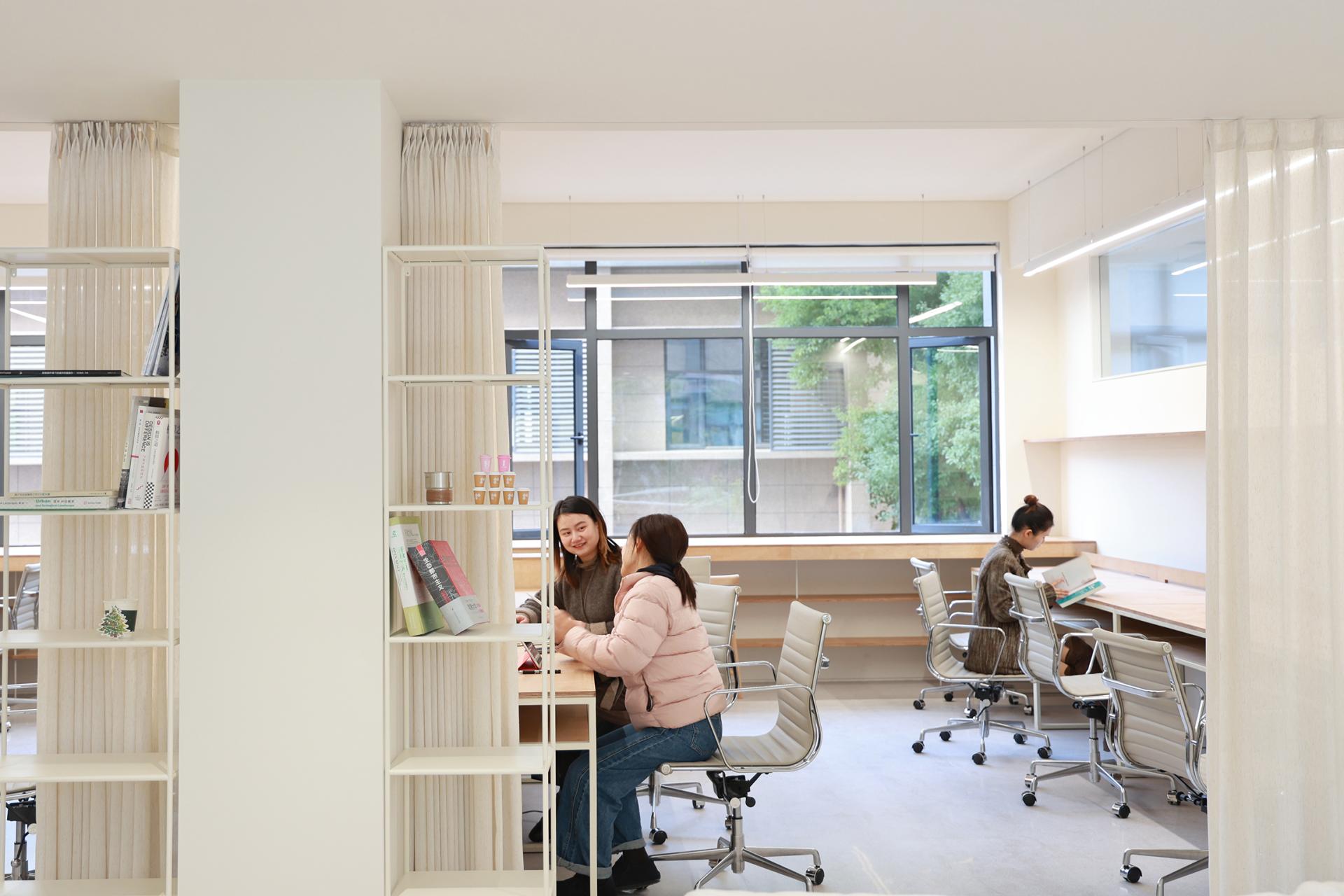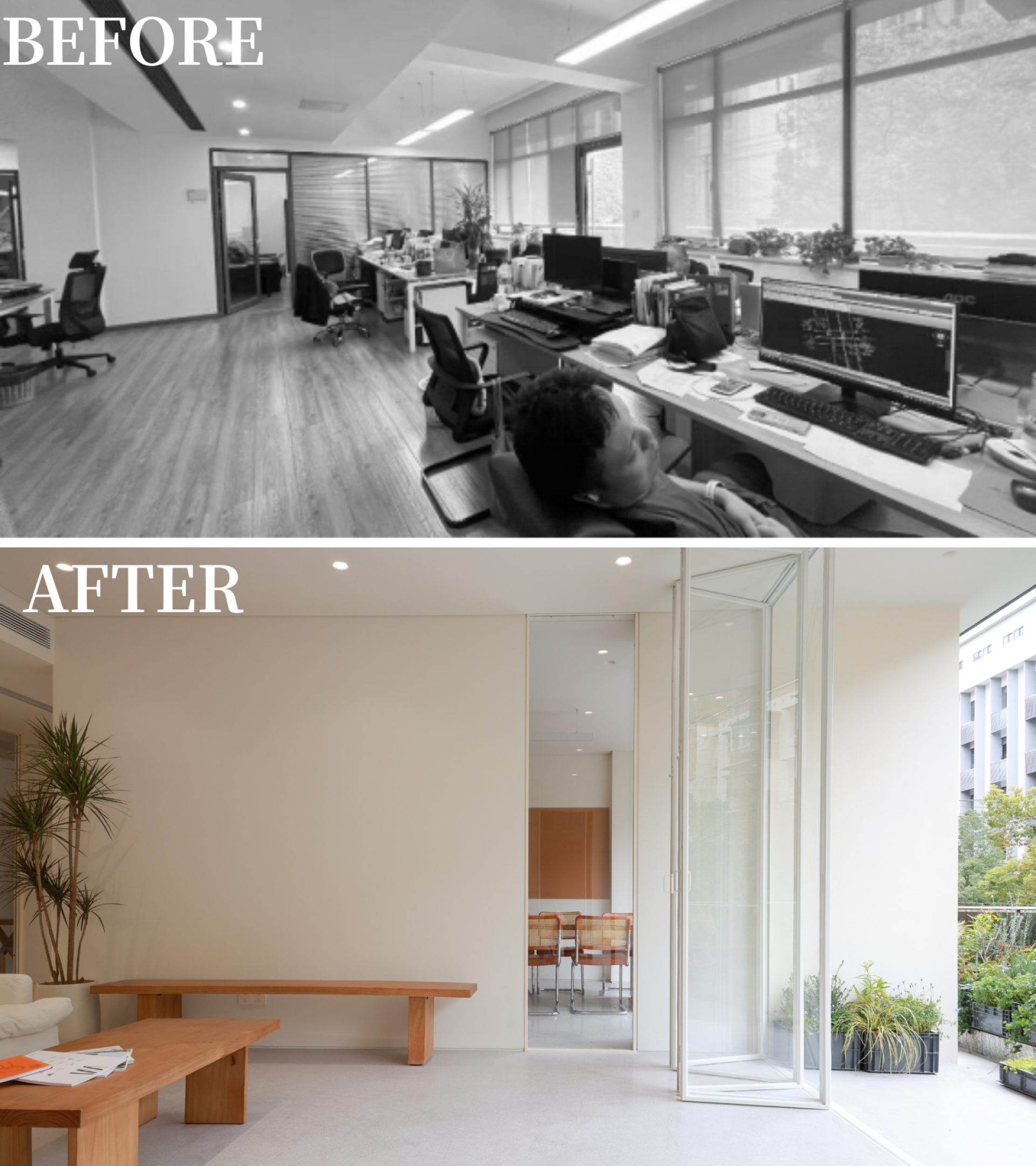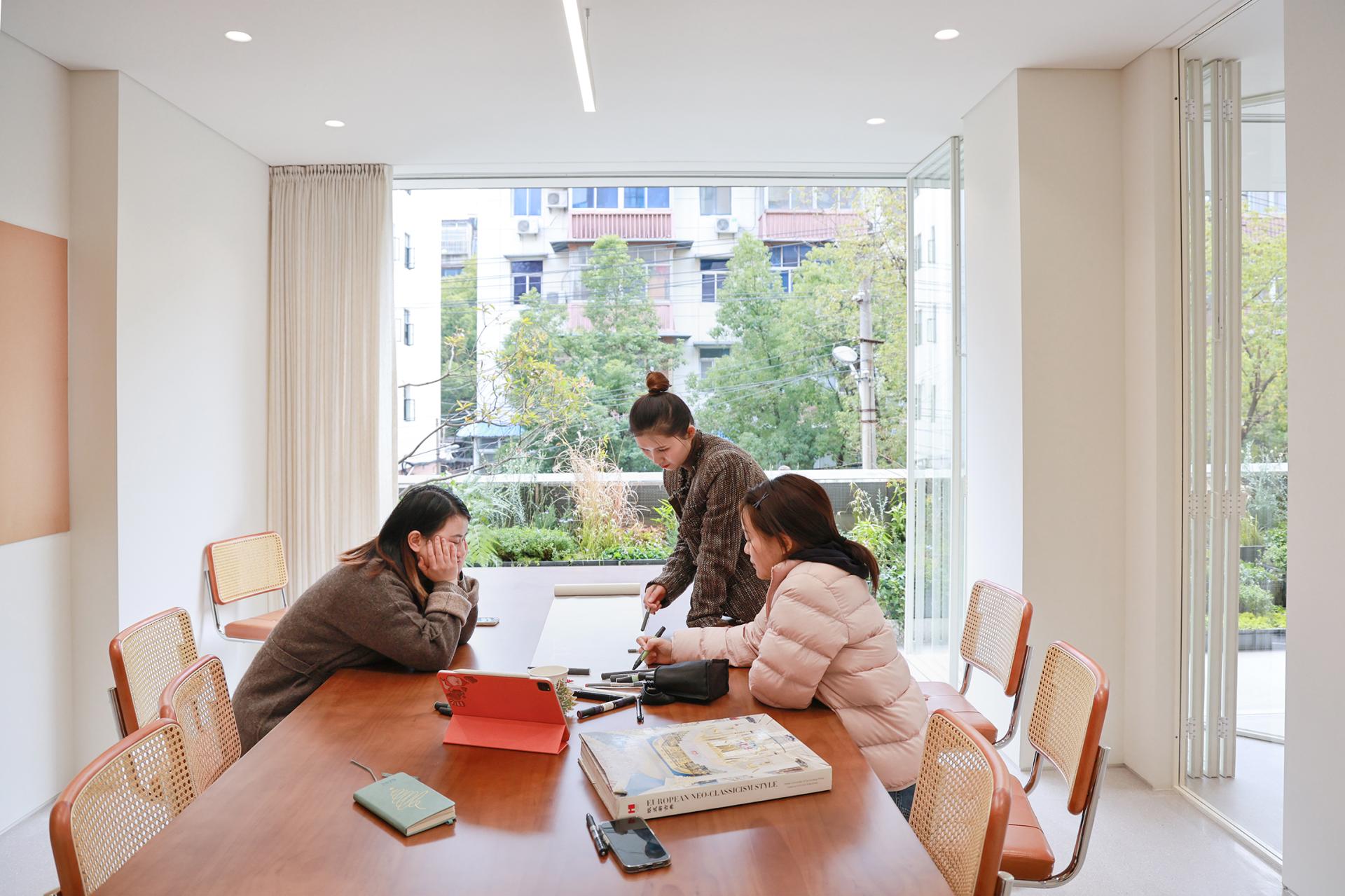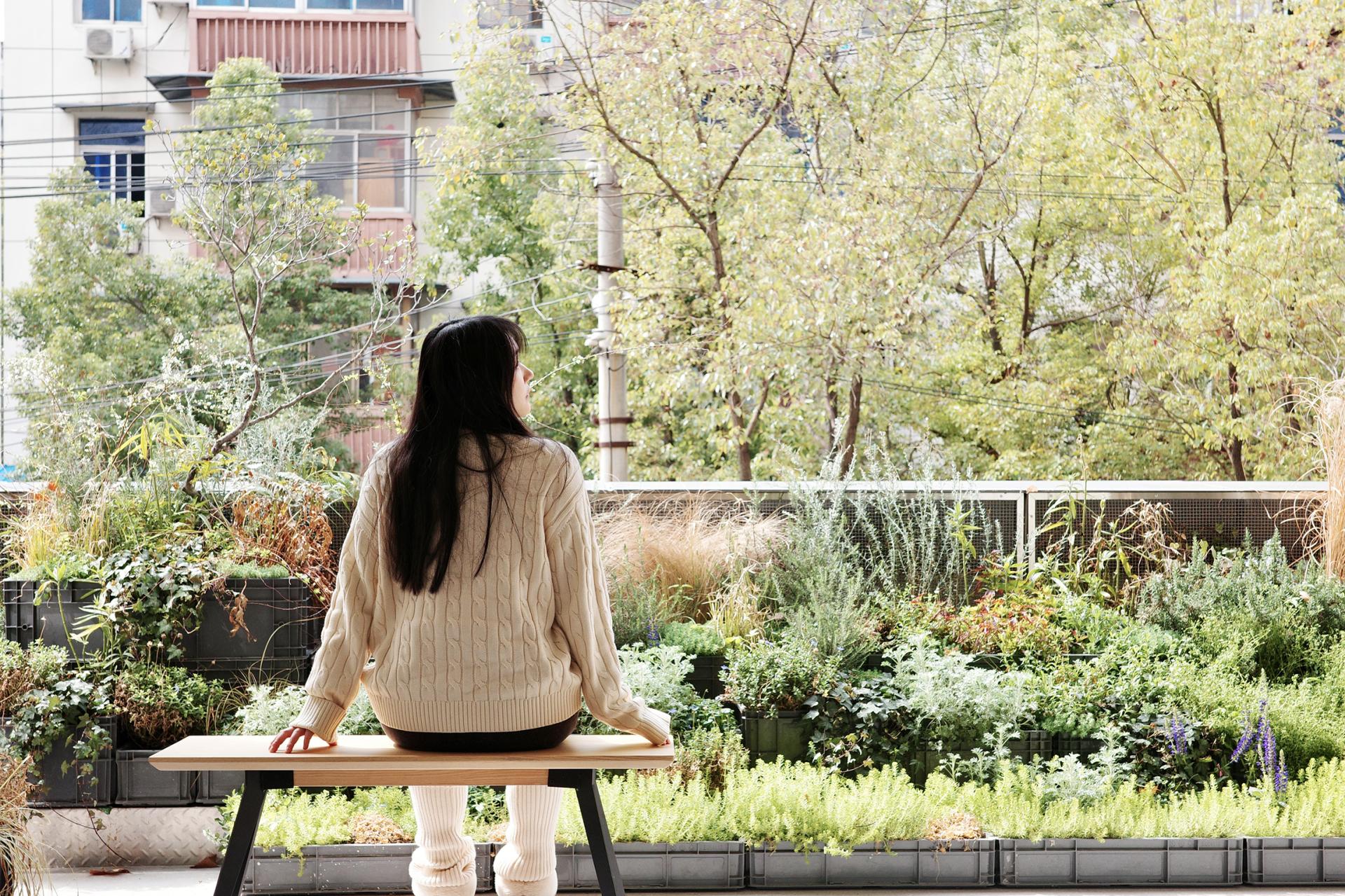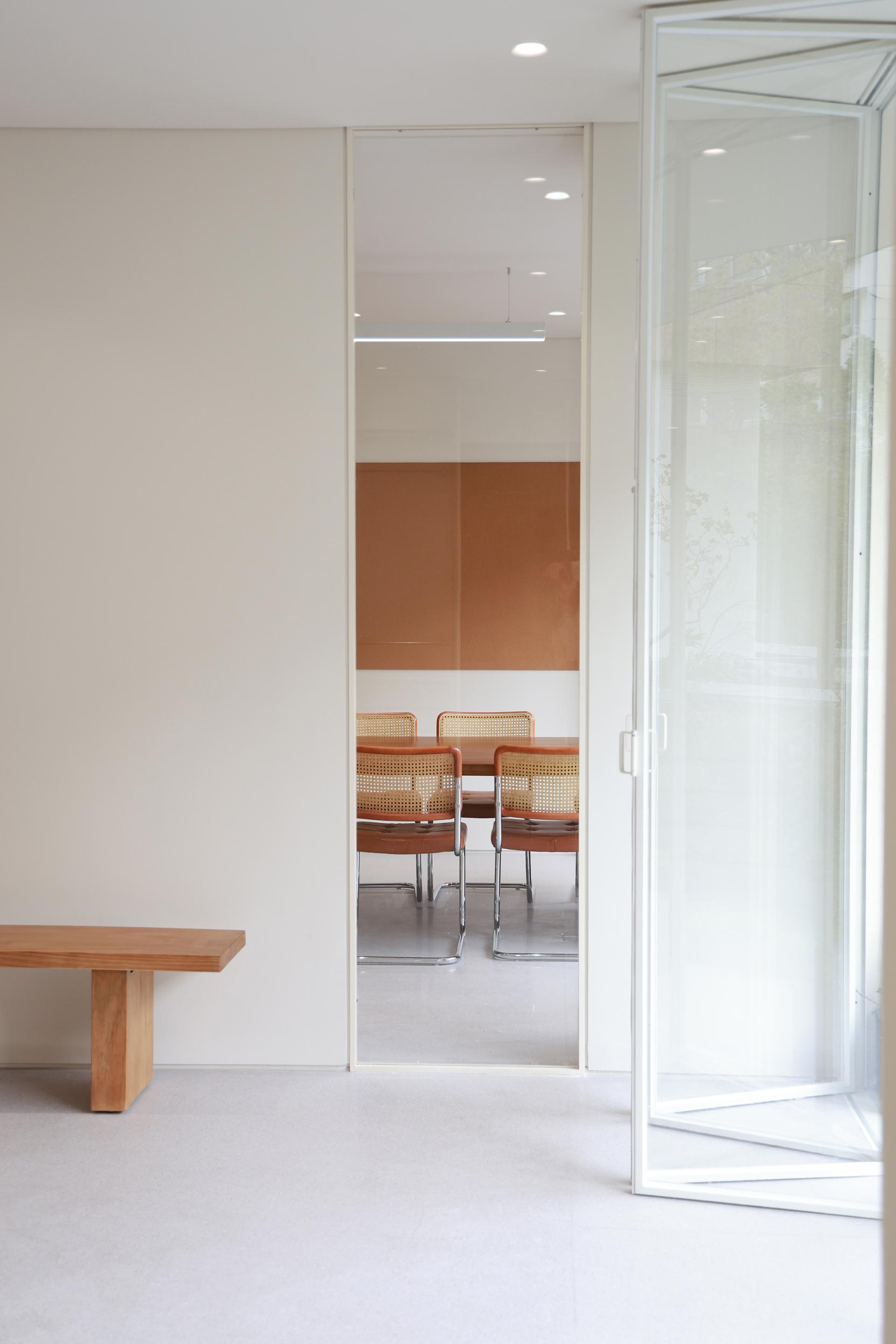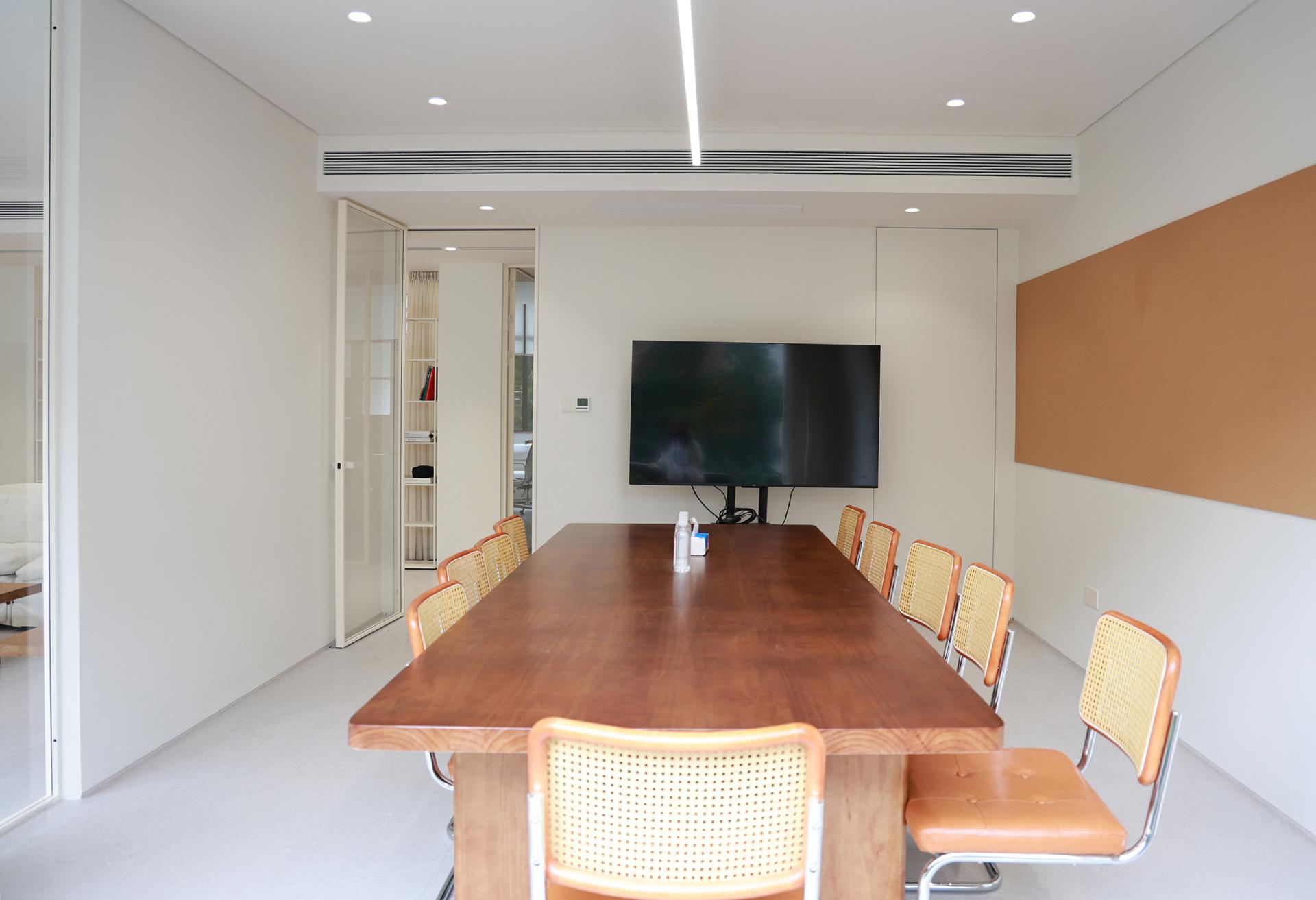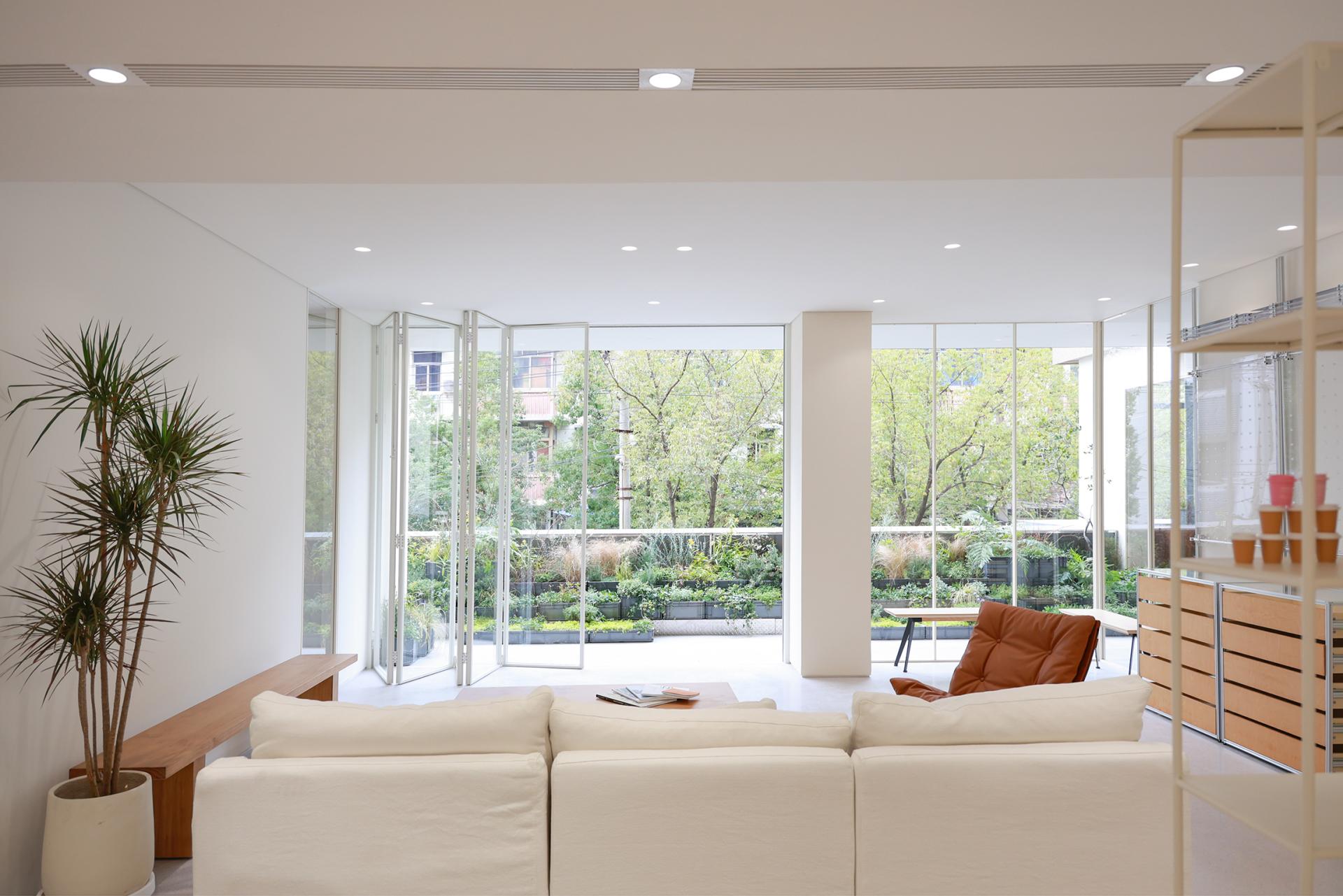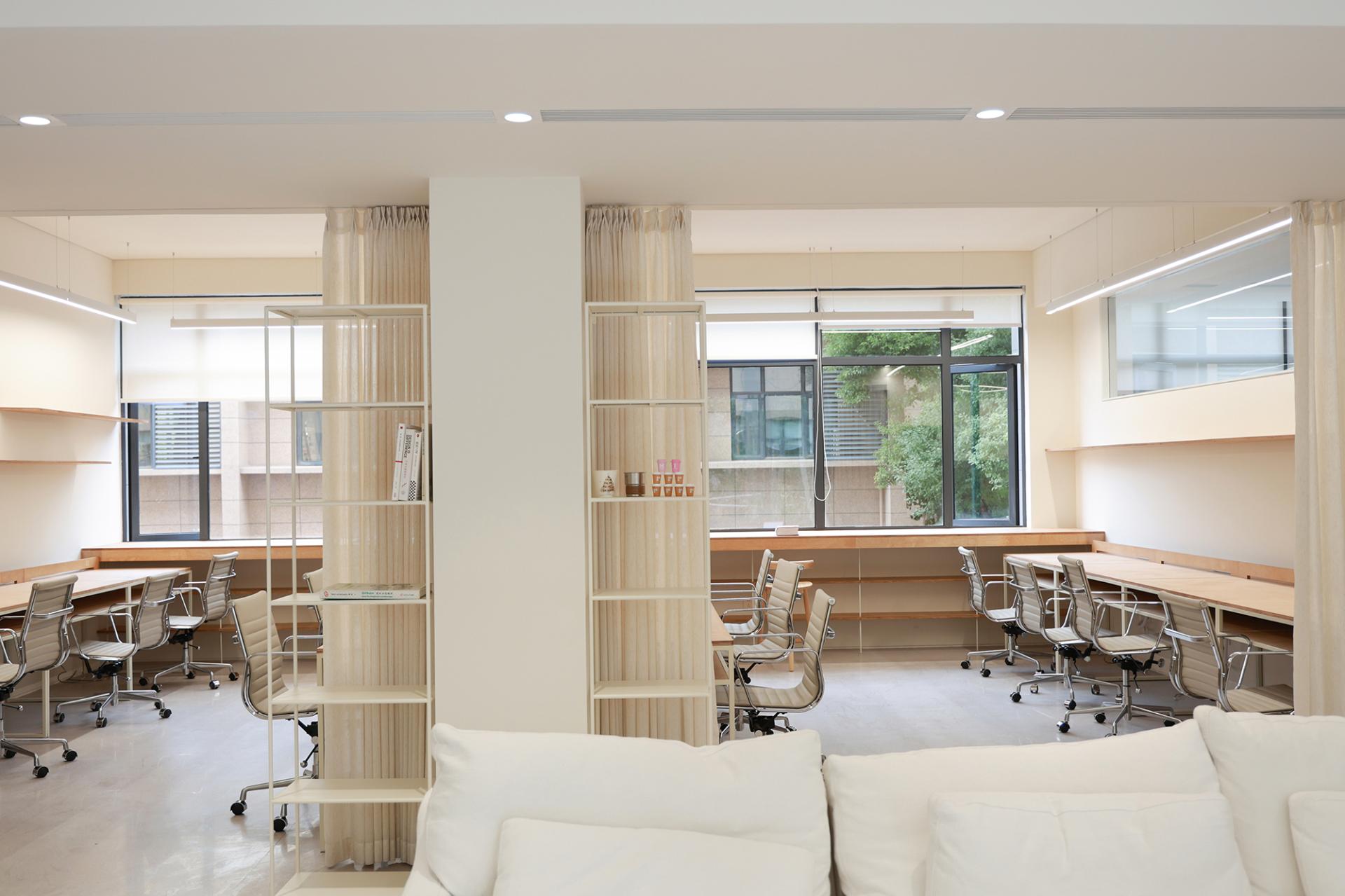2025 | Professional

Pervading Green: Co-Working Hub
Entrant Company
Hubei Architectural Design Institute Co.,Ltd
Category
Interior Design - Renovation
Client's Name
Country / Region
China
1. Design Concept
This shared workspace anchors the No. 66 Zhongnan Road Community Regeneration Project. Embracing the concept of boundary dissolution, it transcends traditional work-life and institutional-residential divides, transforming the planned-economy-era dayuan—a vessel of collective memory—into a contemporary hub for creative production.
2.Context & Challenges
Located in the historic urban core of central China, the community exemplifies the decline of aging neighborhoods amid rapid urbanization. Public realms have eroded due to parking encroachment, informal structures, and ad-hoc vending, compressing residents’ opportunities for social interaction. Its dayuan typology preserves a unique spatial-social fabric—a tightly knit network embodying generational memory—now critically strained by urban transitions.
3.Design method
As embedded practitioner-residents, we address community resilience through integrated spatial-social design. Our intervention counters social alienation and spatial erosion via public space reclamation, employing strategies of spatial revitalization and boundary dissolution to cultivate an inclusive, equitable commons.
4.Design Intervention
Dynamic Programming: Integrated zones for focused work, reception, and meetings balance privacy with multi-layered interaction.
Terrace Reactivation: Underutilized terraces are transformed into immersive biophilic environments.
Visual Connectivity: Glass partitions and light-toned flooring enhance transparency, ensuring indoor–outdoor continuity. A neutral palette (off-white, light wood, brown accents) grounds the space, punctuated by vibrant material samples for dynamism.
Adaptable Infrastructure: Custom movable perforated panels merge display and storage functions with modular furniture, enabling flexible, professional-yet-artistic composite spaces.
5.Impact
Beyond its programmatic utility, the hub functions as a social condenser, catalyzing both creative output and neighborhood revitalization. As the nucleus of the 66 Community Ecosystem, it establishes symbiotic relationships with adjacent community commerce, public activity zones, and cultural venues—collectively forming a hyperlocal, collaborative, and sustainable designer ecosystem.
The project demonstrates a critical paradigm shift: from physical retrofitting to genuine socio-spatial symbiosis, establishing a replicable model for culturally rooted urban regeneration.
Credits

Entrant Company
brandston partnership inc.
Category
Lighting Design - Art (Interior & Exterior Lighting)

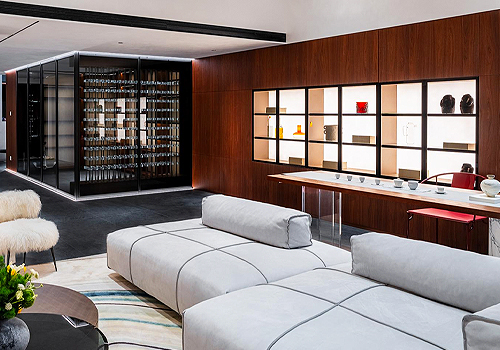
Entrant Company
HRSD Haorui International
Category
Interior Design - Residential

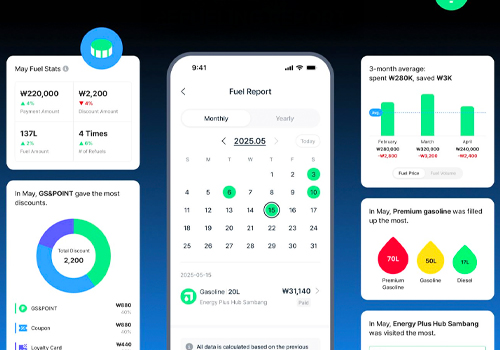
Entrant Company
GS Caltex, Favorite Medium, and GS ITM
Category
Product Design - UX / UI / IxD (NEW)


Entrant Company
AR-kee Design Studio Pte Ltd
Category
Interior Design - Healthcare

